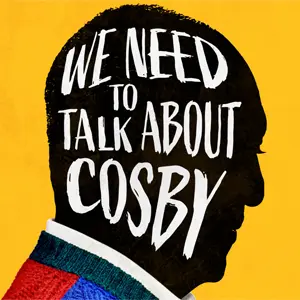We Need to Talk About Cosby should be a blueprint for covering horrible people who once brought joy
-

W. Kamau Bell's four-part Showtime docuseries on Bill Cosby's legacy takes an artistic risk. "We Need to Talk About Cosby.... features women telling harrowing stories of being drugged and assaulted by Cosby, while at the same time tracing the comedy giant’s groundbreaking career and how he managed to burrow his way into America’s consciousness," says Elamin Abdelmahmoud, adding: "This is a precarious balance, one that could easily be misconstrued as an attempt to salvage Cosby’s legacy by framing what he is being accused of in the larger context of a titanic career. But Bell walks a messy, delicate line, managing to acknowledge Cosby’s impact while arguing that we have a duty to recanvass his accomplishments for clues that Cosby was the monster he is accused of being. He found plenty. Bell’s documentary weaves powerful accounts from Cosby’s accusers with poignant insights into his legacy from academics, journalists....comedians, and legal experts. The film ought to become the gold standard of public reckonings — a thoughtful and thorough look at a monster, a tender and clear-eyed recognition of what he gave us, and an urgent plea to not lose sight of either, no matter how hard it is to look."
ALSO:
- We Need to Talk About Cosby holds up a scathing mirror of America: "The docuseries pairs testimonials from Cosby’s rape victims, culture critics, fellow comedians, and others with re-examinations of archival footage of Cosby’s rise and demise, all to paint the most comprehensive picture of his stratospheric career and terrifying exploits," says Keith Nelson Jr. "If you’re a rape survivor, the detailed recollections from Cosby’s victims are triggering. If you grew up seeing Cosby as America’s dad, you may feel like an unwitting enabler of a monster. In footage from the final episode of the series, Bell admitted that he almost quit making it in order to preserve the image of Cosby he grew up with. But by the end of We Need To Talk About Cosby, it becomes glaringly obvious we can’t talk about Cosby without having the tough talk about America." Nelson adds: "The docuseries could’ve easily painted any present adulation of Cosby’s past work as supporting Cosby the abuser, but it instead shows the complexity in disavowing Cosby completely. People like Marc Lamont Hill, The Atlantic journalist Jemele Hill, comedian Godfrey, and Boston Globe associate editor Renée Graham are all vehemently critical of Cosby throughout the four-part docuseries — but that criticism is juxtaposed with clips of them rewatching old The Cosby Show videos, smiling instinctively. Bell’s decision to include those moments makes the viewing experience reflective, as those same smiles will likely cross the faces of viewers who can recite those scenes line-for-line themselves. Watching these interviewees, you can almost see the battle between each person’s brain (which registers Cosby as a reprehensible monster) and their heart (which still has fond memories of Cosby) play out in their facial expressions. Those small moments are crucial in depicting the issue of Cosby in all of its complexity — especially when juxtaposed by the joyless response of Cosby accuser Linda Kirkpatrick watching the same videos. Such nuanced conversations are missing from most of the discourse surrounding Cosby’s sexual predation, and they make We Need To Talk About Cosby required viewing for anyone who truly wants to understand the context beyond the controversy."
- We Need to Talk About Cosby proves we need to go beyond separating the art from the artist
TOPICS: We Need to Talk About Cosby, Showtime, Bill Cosby, W. Kamau Bell, Documentaries
More We Need to Talk About Cosby on Primetimer:- Black viewers were not foolish to enjoy The Cosby Show or to need what Bill Cosby was selling
- W. Kamau Bell was surprised Bill Cosby called him a "P.R. hack," says there's at least another Cosby documentary in existence
- In W. Kamau Bell's We Need to Talk About Cosby, rarely does a title give such clear instruction and still earn its declarative urging
- TV Today: The Woman in the House, The Afterparty Headline a Weekend of Premieres
